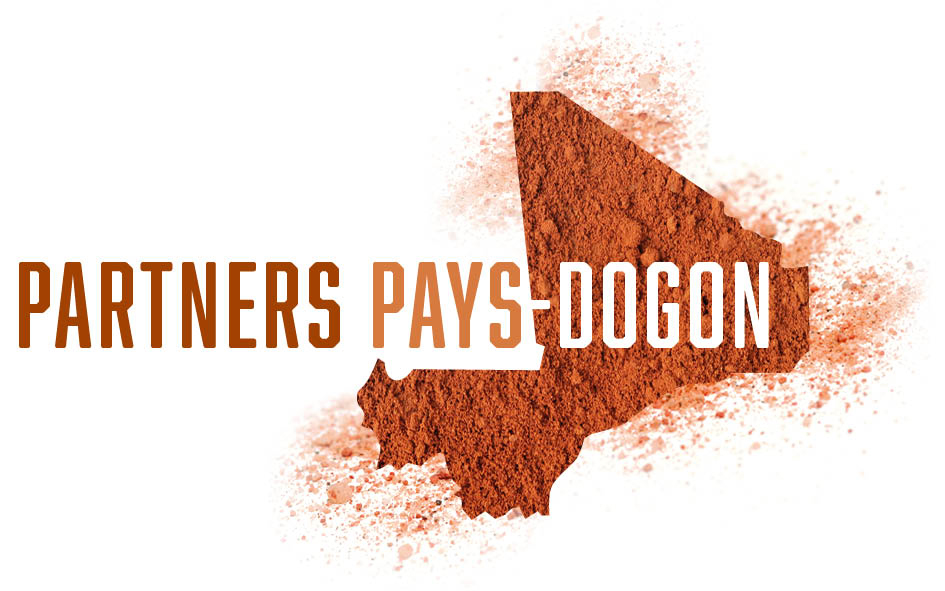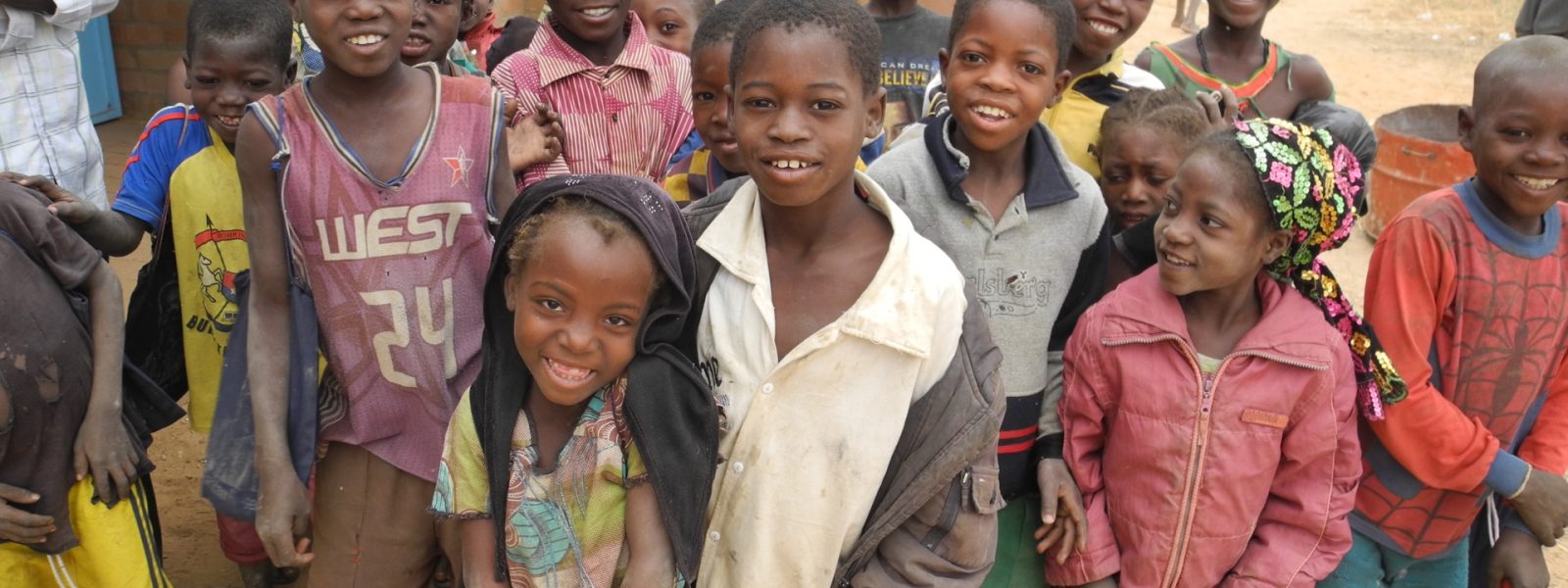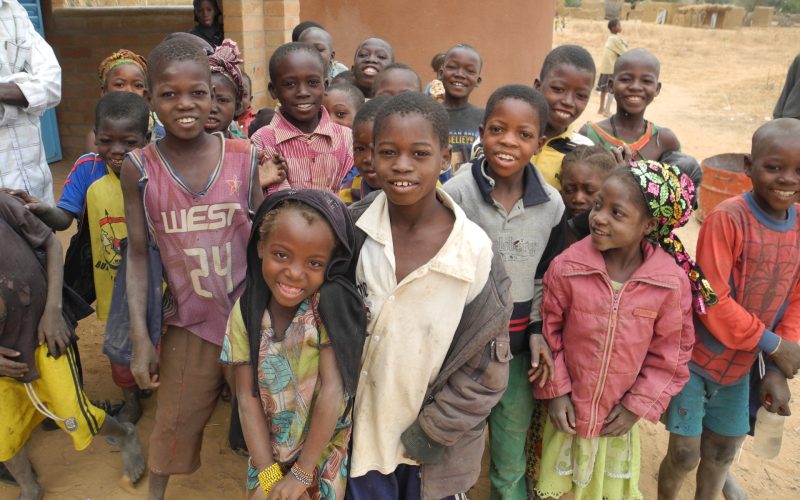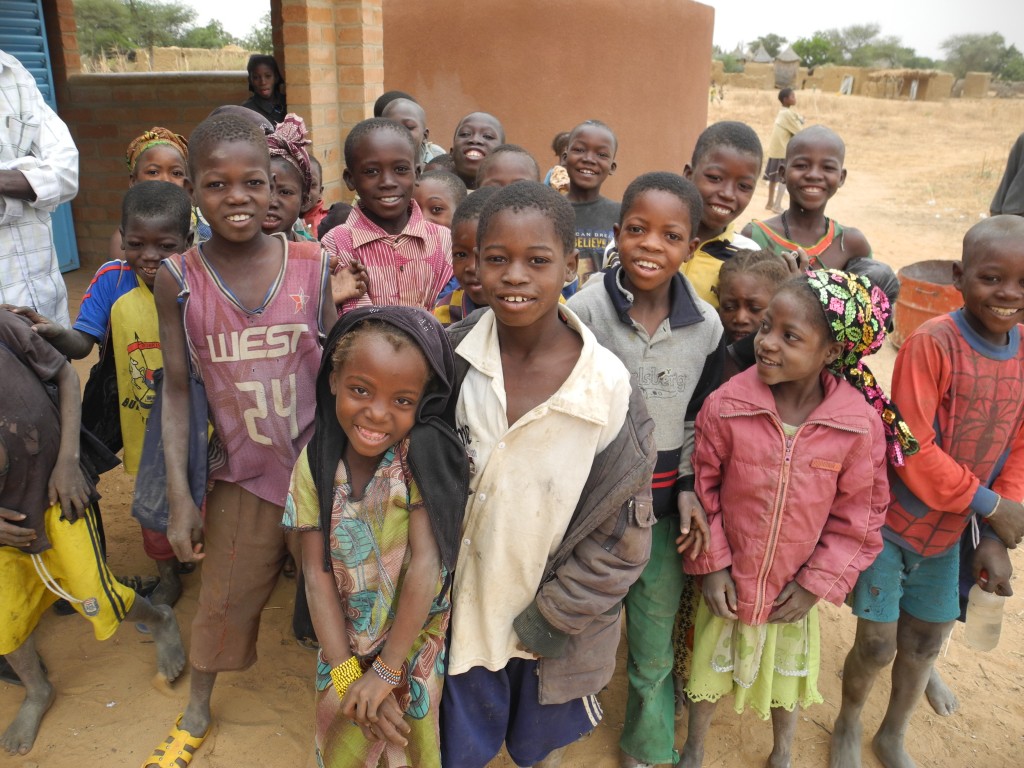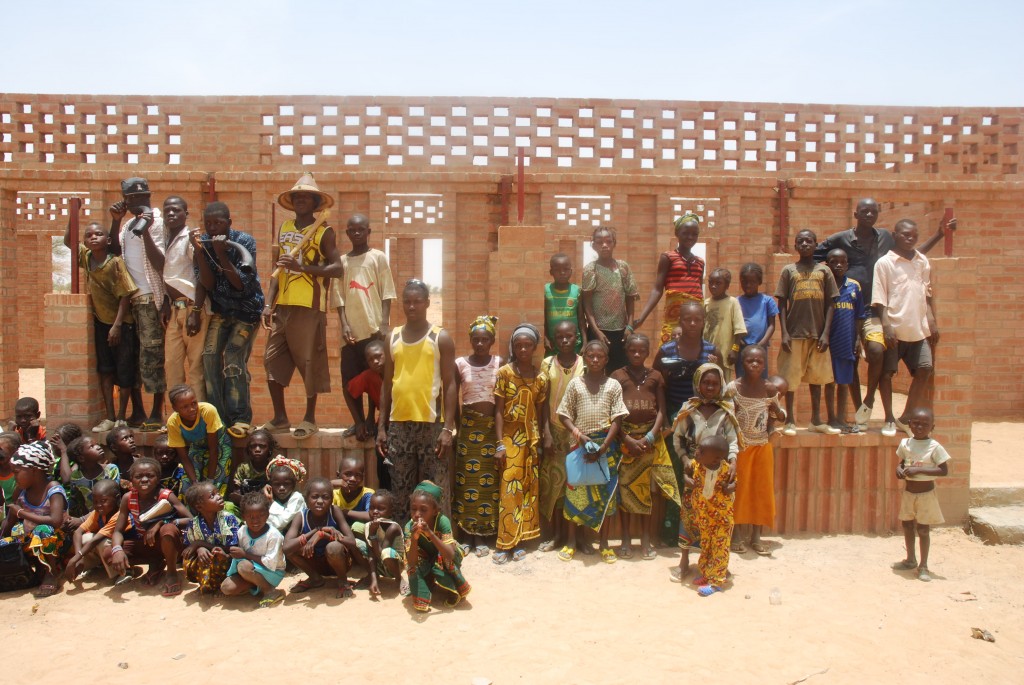Again and again the children ask me for a pen, but if I ask them in my best French ‘why’, they fall silent. It is clear they don’t have pens, but actually why do they ask for them, if school, teachers, and notebooks are lacking? What actually could they do with them in daily life? It is learned behavior, and we taught them so, nobody else. Actually, this is very often the case, I notice unfortunately. The school-system resembles ours, that is to say the just-after-the-war version, orderly seated in their banks, children following in class lessons and repeating what the teacher tells them. There is no deviation from the strict discipline in the class and the outside world. Imitating, repeating, copying, that’s the guideline. One’s own initiative, making up one’s own mind, creativity, leadership just name it, it’s all lacking. Our old-fashioned in class school-system with its fixed daily timetable with permanent instructions and values set the overtone. But also the image that we ‘know’ it, we from the West, and the image that we can give them all and do give them all too.
Sometimes you meet someone who tells you: money is expensive for everybody. Also for people from the West, but furthermore it really seems as if we just give everything. We did so during many decades. We also gave what we considered to be good, or what we thought they should consider being good. Education our way, with school banks, notebooks, doing sums, language and history. The teacher in front of the class and the children in class having to sit down the whole day in their banks, peering in the dusk at the blackboard, learning a language meaning little to them. How do we really make a next step is an issue haunting me more and more. The pattern is already so deeply entrenched and blaming children because they say “donnez moi une bic” is a bit of symbolic politics. The train, rather say the High Speed Train of giving, rumbles quite well on to the next station while I believe far more in the quiet diesel train of may be even in the steam train. But those ones feel far less comfortable of course. What is then the track of the new train? Laying down slowly the sleepers and the rails I think, where we contribute to the deliverance of hardware, but where the laying of the sleepers, the rails and in particular the direction of the track slowly but surely will be determined by the Diaspora of the country, the people, the village you name it. That makes you very nervous of course if you think to know the way. But do we know the way? The way will be found by “leaders” and everyone may be a leader in its own field. Realizing projects becomes a side issue, and finding people and the coaching of these leaders will be the main goal. At the same time it’s necessary to build up confidence, progress should become visible, and there should be contact with the country, the government and with the community. And it will be important too that perhaps now and then “givers” will pass by, but that at the same moment it might be clear that this will not determine the future ultimately. This all will determine the future of FDE, DWI and ADI.
How do we make a difference with our approach, and what is our approach? In essence one could say the giving of confidence in one’s own capabilities, leadership and opportunities. Assisting projects supported out of the community. Teaching and coaching, identification of “leaders” and assist them positively. At the same time it will remain so that the helicopter view that “we” happen to have, enables us to see opportunities that are still unknown, thereby giving direction by proposing ideas. Because really ecological agriculture, Jathropha for biodiesel, the green desert, other agricultural techniques or constructing with pressed earth stones will definitely not be invented locally, we bring those ideas. The pitfall remains that we don’t have the patience or that our partners, read our donors, would like to see results. A well, a school, a jolly group of women… just name it. And also here it’s true that there is no realistic image. How many people have a permanent job, where they are just look after, and how many of them are real entrepreneurs? And how much do we really invest ourselves… if we are young yes, fair enough, but later on? And how much do we really expect from the “government”? “Donnez moi” has become very usual here also finally.
The essence of all is, finally, the long-windedness, the small steps, the finding of those individuals who as a stone in the water bring about ripples. The quest for them and for us. It’s no experiment; it’s just the track of the rails and the sleepers as we are going to lay them together with our partners. The art is not to quickly lay the network of the High Speed Train where eventually no train ever will go, but to build together patiently. For the evaluation and for the impact of government policy and thinking this is difficult of course, but finally local entrepreneurship, developed leadership and individual creativity will produce a more extensive sustainable result. It’s may be up to us to show that a larger regional approach functions: schooling, emancipation, entrepreneurship and leadership as carrying elements.
